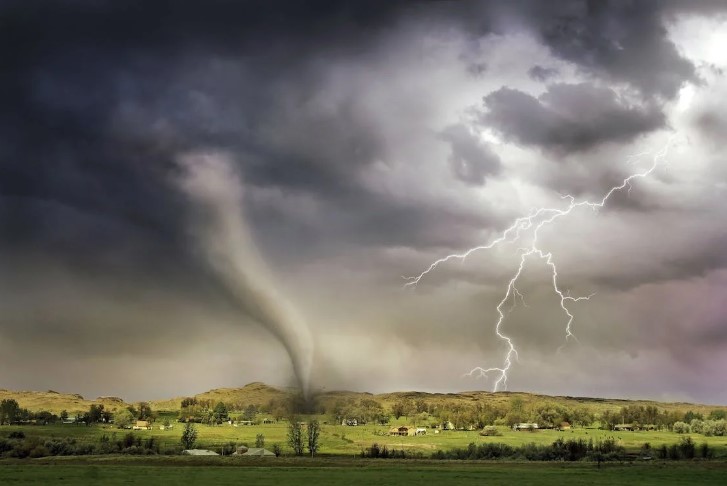CHAPTER
North Carolina’s alluring blend of mountainous landscapes, sandy shores, and bustling metropolitan areas often places it high on the list of desirable relocation destinations. However, a move to the Tar Heel State comes with a set of complexities that potential newcomers should consider carefully. This extensive analysis will provide you with a thorough understanding of the less glamorous aspects of life after relocating to North Carolina.
Weather Extremes: Preparing for Mother Nature’s Mood Swings

North Carolina’s climate is a study in extremes, with each season bringing its own set of challenges. The sultry summers are not for the faint-hearted. In cities like Raleigh, temperatures often reach the upper 90s or even higher, as was the case in the sweltering summer of 2019. The humidity can make the heat feel even more oppressive, significantly impacting outdoor activities and energy consumption as residents crank up their air conditioning. When you’re relocating to North Carolina, prepare for a climate that’s a study in extremes, presenting unique challenges each season.
Winters, on the other hand, can be unpredictable, particularly in the mountainous regions where snow and ice storms are common occurrences. The winter storm Diego in 2018 was a stark reminder of the state’s susceptibility to severe winter weather, as it left thousands without power and stranded due to heavy snowfall and ice. These conditions not only disrupt daily life but also can lead to costly property damage and increased heating bills.
The Allergenic Assault: Pollen’s Pervasive Presence

Springtime brings a different challenge: pollen. In 2020, North Carolina witnessed one of its worst pollen seasons, with a thick blanket of yellow dust covering the Raleigh area, causing air quality to plummet and leaving allergy sufferers in distress. The high pollen counts can lead to weeks of discomfort for many, necessitating air purifiers in homes and frequent car washes to remove the sticky yellow film that coats everything outdoors. So, for those relocating to North Carolina, it’s vital to be aware of the potential for severe weather disruptions and the associated costs.
Traffic and Transit: The Urban Gridlock Dilemma

As North Carolina’s cities expand, so does the traffic. Charlotte and Raleigh have been grappling with this growth, leading to congested roads and relocating to North Carolina means anticipating extended commute times. The infrastructure, although improving, struggles to keep up with the influx of residents and vehicles. For example, Charlotte’s major thoroughfares regularly experience bumper-to-bumper traffic during rush hours, leading to frustration and lost productivity as residents spend a significant portion of their day in transit.
Property Taxes and Housing: Economic Factors in Flux

The economic landscape of relocating to North Carolina can be complex. Property taxes vary significantly across the state, with urban areas typically seeing higher rates. Mecklenburg County, for instance, not only has steep property taxes but also some of the highest housing prices in the state. Prospective homeowners must be mindful of these costs, which can add a considerable amount to monthly expenses. The cost of living in major cities like Raleigh has been creeping up, with the housing market reflecting this trend through rising prices for both buyers and renters.
Population Growth: The Double-Edged Sword

The state’s growing population can be seen as a testament to its desirability, but it also leads to issues like overcrowding and cultural dilution. Asheville’s transformation is a prime example; it has morphed from a relaxed mountain town into a bustling tourist destination. Relocating to North Carolina also means becoming part of a growing population. While this brings economic benefits, it also strains infrastructure, increases the cost of living, and shifts the local culture, potentially diminishing the charm that attracted residents in the first place.
Education: A Varied Educational Experience
For families relocating to North Carolina, it’s crucial to consider the educational landscape as it is a patchwork of excellence and underperformance. While the state is home to prestigious universities and some high-performing public schools, there are stark disparities. A report by the Public School Forum of North Carolina highlighted the funding and resource gap, with poorer districts unable to provide the same level of education as their wealthier counterparts. This disparity can have profound implications for families with children and is a significant factor to consider when relocating.
Healthcare: A Tale of Two Systems
Healthcare quality in North Carolina varies dramatically from one region to another. Urban centers offer some of the best medical care in the country, but rural areas often lack basic healthcare services. The disparity was starkly highlighted when residents of remote areas, such as those living in Bertie County, had to travel long distances for medical care, a barrier that could be life-altering for those with serious health conditions.
Natural Disasters: The Inescapable Reality

The state’s susceptibility to natural disasters is a serious concern. Hurricanes, such as Florence in 2018, not only cause immediate destruction but also long-term economic and emotional distress. Floods and wildfires further compound the state’s vulnerability, affecting insurance rates and leading to potential relocation within the state for those most severely affected.
Political Landscape: A State of Division
North Carolina has been at the forefront of several national political controversies, reflecting a state deeply divided along political lines. The “Bathroom Bill” was one such issue that polarized the state and received national attention, affecting the state’s economy and social fabric. For those who value political stability and consensus, the state’s political volatility can be disconcerting.
Concluding Thoughts for Prospective North Carolinians
This comprehensive look at the challenges of relocating to North Carolina is not intended to dissuade but to inform. The decision to move to a new state should be based on a thorough understanding of both its strengths and its weaknesses. While North Carolina boasts a rich history, diverse geography, and vibrant cultural life, potential residents must consider how the state’s specific challenges align with their personal and professional goals. It’s about finding the right fit—a place where the positives outweigh the negatives and where one can build a fulfilling life amidst the realities of the region.
FREQUENTLY ASKED QUESTIONS
1. What should I be aware of regarding North Carolina’s weather extremes?
- North Carolina’s weather is characterized by extreme conditions that can vary greatly depending on the season and location. For example, the summer of 2019 saw Raleigh experiencing temperatures hitting the 100-degree mark, and winter storm Diego in 2018 brought significant snowfall to the mountains. Potential residents should be prepared for hot, humid summers, hurricane threats along the coast, and variable winter conditions that can range from mild to severe snow and ice storms.
2. How significant is the pollen issue in North Carolina?
- Pollen can be a major issue in North Carolina, particularly in the spring when pollen counts are high. The spring of 2020 was notably severe, with a dense pollen blanket covering areas like Raleigh. This can cause substantial discomfort for those with allergies or respiratory issues, requiring measures such as air filtration systems and regular cleaning to mitigate the effects.
3. Can you elaborate on the traffic situation in North Carolina’s major cities?
- North Carolina’s major cities, especially Charlotte and Raleigh, have been experiencing increasing traffic congestion as they grow. The infrastructure developments often lag behind the population growth, leading to crowded roads and longer commutes. For instance, Charlotte’s main highways can get heavily congested during peak hours, which could add significant time to daily commutes.
4. What are the property taxes and cost of living like in North Carolina?
- Property taxes and the cost of living in North Carolina can vary widely depending on where you choose to live. Urban and coastal areas tend to have higher property taxes, with Mecklenburg County being an example of an area with higher taxes and housing costs. The cost of living in cities like Raleigh has been on the rise, largely due to the housing market’s demand driving up prices.
5. What should I know about the state’s approach to education and healthcare?
- Education in North Carolina offers a mix of high-performing public schools and universities alongside underfunded districts with struggling schools. The Public School Forum of North Carolina’s report on educational disparities is a testament to this uneven landscape. In terms of healthcare, while urban centers provide excellent care, rural areas may have limited access. For example, residents in remote counties might need to travel extensively for specialized medical services.
Discover Your Dream Home in Our Vibrant Community! Explore our diverse range of housing options, each offering unique amenities and styles to suit your lifestyle. Whether you’re seeking a cozy suburban feel or the dynamic pulse of city living, our area has something special for everyone. Start your journey today and find a place where life’s best moments await. Your perfect home is just a search away – delve into our welcoming community and embrace the opportunity to create your ideal living space!
For a deeper understanding of Cary’s real estate nuances, consider exploring the article above. If you would like to talk to a Realtor®, please contact us. We are here to help and answer any questions.








